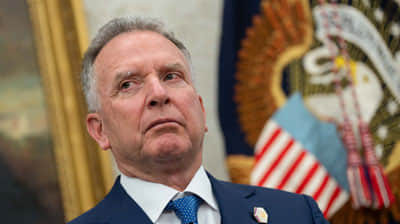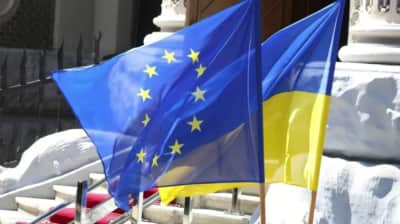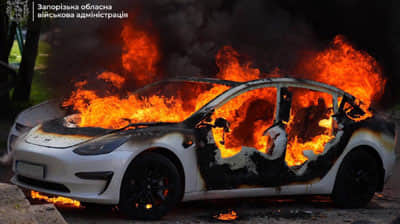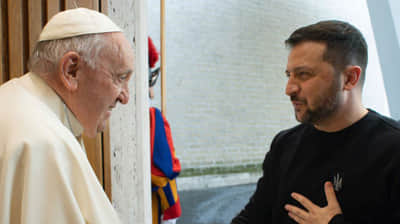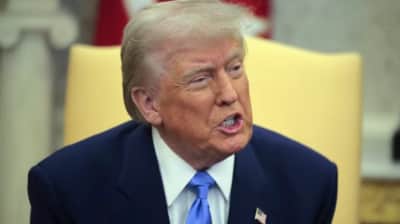West is thinking of scenarios where Putin wins in Ukraine
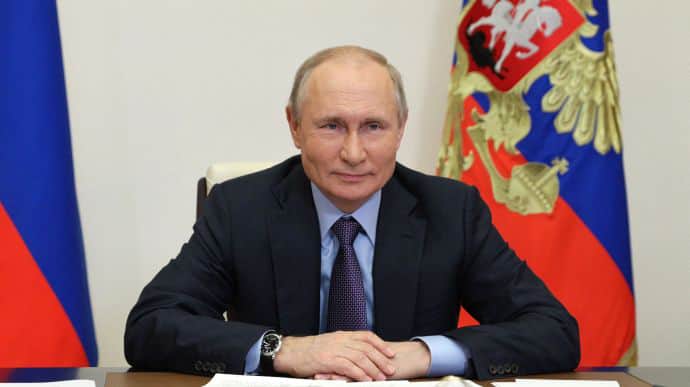
The Western opinion on the war in Ukraine has been moving towards thinking that Russia could win the war, and Ukraine could lose additional territories and even its sovereignty, in which case NATO would be defeated, and the consequences would be felt around the world. Such opinions are expressed in articles by the Financial Times and Bloomberg.
Source: Financial Times and Bloomberg
Details: The Financial Times wrote that the West is toying with the idea of letting Vladimir Putin have Ukraine. And two days earlier, Bloomberg wrote that the stalemate with aid from the US and Europe was causing Ukraine's allies to worry that Putin might win.
The Kiel Institute for the World Economy has calculated that promised Western aid to Ukraine has fallen by almost 90% since 2022, even before the US and EU failed to approve additional funds this month.
Voters, incited by the pro-Putin far-right, are fed up with the war in Ukraine. The West, after an 18-month hiatus, is resuming its 15-year appeasement of Putin's aggression.
According to the FT, the "if Russia wins" scenario is becoming more and more plausible. And it could look like this:
- Russia exacts terrible victor’s justice on Ukrainians. This isn’t speculation. It’s precisely what the Russians have already done in Ukraine: mass executions, castrations, rapes, torture and abductions of children. Guerrilla attacks by Ukrainian partisans would trigger more Russian reprisals. Millions more Ukrainians would flee west, this time permanently. Remember that the arrival of 1.3mn refugees in 2015 turbocharged Europe’s far right.
- A free state might survive in western Ukraine, writes former UK diplomat Peter Ricketts. It might even join the EU. But it could expect repeated Russian attacks, no matter what "treaties" were signed. A rolling Russian advance would take territory when it could.
- Putin would control close to a quarter of the world’s wheat exports. He has already been upgrading from gas as a weapon to food as a weapon.
- Putin’s success would encourage countries interested in invading a neighbour: China, Venezuela, Azerbaijan and, indeed, Russia. The likely creation of a Ukrainian army in exile running sorties from European countries would further incentivise Russian attacks on those places.
- A discredited NATO would face its biggest test. Putin seeks to prove they won’t hold. If he attacked the Baltics, NATO would probably send troops. Once a few hundred western soldiers came back dead, far-right parties would demand "peace". Western countries could retreat, saying nobody would want to escalate to nuclear war.
Americans and Western Europeans feel secure, and some Eastern European countries have begun to spend huge amounts of money on defence and armaments.
Quote from the Financial Times: "Ditching Ukraine would be a choice. There is an alternative. Russia has a low-tech economy about the size of Canada’s. The Europeans could help Ukraine withstand Putin even if Trump pulled out. We’d have to build up our arms industries fast, but the effort required of us would be tiny compared with Russia’s.
We’d also need to replace American aid to Ukraine — €71.4 billion in the war’s first 21 months, according to the Kiel Institute, or €40.8 billion on an annualised basis. That’s €70 a year per European citizen of Nato. We could find that if we wanted."
Quote from Bloomberg: "With more than $110 billion in assistance mired in political disputes in Washington and Brussels, how long Kyiv will be able to hold back Russian forces and defend Ukraine’s cities, power plants and ports against missile attacks is increasingly in question.
Beyond the potentially catastrophic consequences for Ukraine, some European allies have begun to quietly consider the impact of a failure for North Atlantic Treaty Organization in the biggest conflict in Europe since World War II."
Details: Bloomberg stated, citing people familiar with the internal conversations who requested anonymity, Europe is overestimating the risks that an arrogant Russia could pose to NATO members in the east.
The ripple effects, as these people said, would be felt around the world as US partners and allies question the credibility of Washington's defence promises.
If Ukraine falls, Russia's threat to Eastern Europe will increase, as before the invasion, Ukraine served as a buffer between Russia and non-Baltic NATO members.
Quote from Bloomberg: "If Russia fully occupied Ukraine, it could establish new military bases in the west of the country and move sizeable forces there. To counter a potential threat against eastern Europe, NATO would have to improve its defensive measures at an enormous financial cost. Even so, it might be unable to defend against a Russian attack."
More details: In addition to doubts in the West about Ukraine's ability to liberate all of the occupied territory, there seem to be doubts about the ability of the Ukrainian Armed Forces to hold the territories under their control.
Kristine Berzina, managing director at the German Marshall Fund in Washington, said: "There is increasing concern about lack of movement on aid for Ukraine on both sides of the Atlantic and frustration that there is this stagnation with dire battlefield consequences. The possibility of Ukraine losing additional territory and even its sovereignty — that is still on the table."
According to European officials, Russia is likely to try to seize more territory and destroy more infrastructure if Ukraine does not get the weapons it needs to defend itself.
If Ukraine is unable to defend itself, they said, it may be forced to accept a ceasefire on Russian terms.
The situation on the front makes it increasingly clear that the fight could last for years and that even the availability of aid may not produce a significant breakthrough.
Analysts also suggest that the United States will have to choose between maintaining sufficient forces in Asia to defend Taiwan from a potential Chinese attack and deterring a Russian attack on NATO. The cost of deploying forces will continue as long as the Russian threat persists – potentially indefinitely.
And this does not take into account the prospect that Donald Trump could win the 2024 presidential election and fulfil his promises to withdraw from major alliances, including NATO, and to strike a deal with Putin over Ukraine.
Support UP or become our patron!

